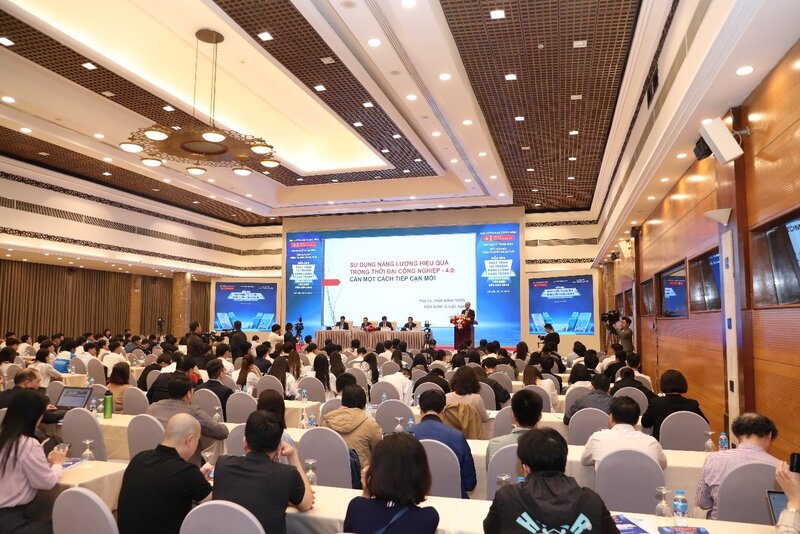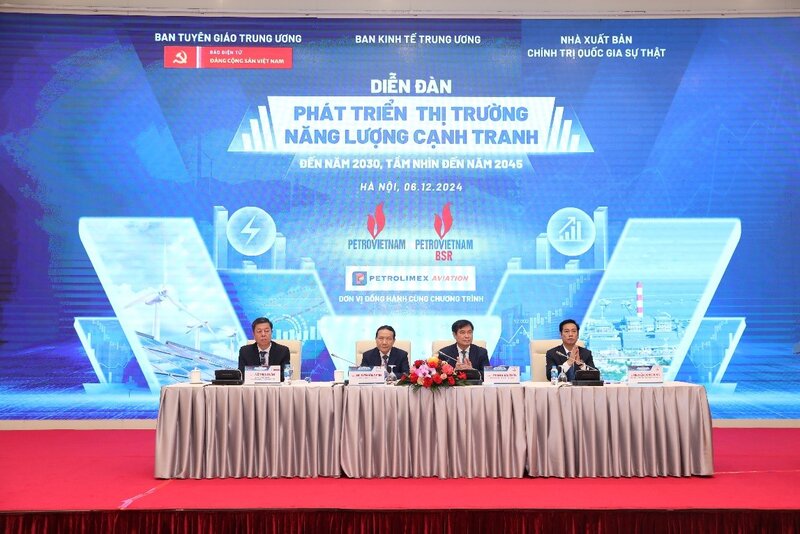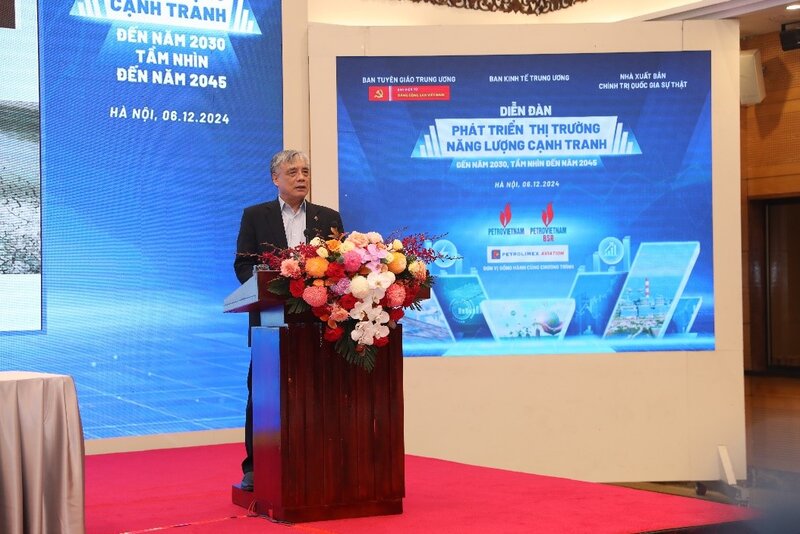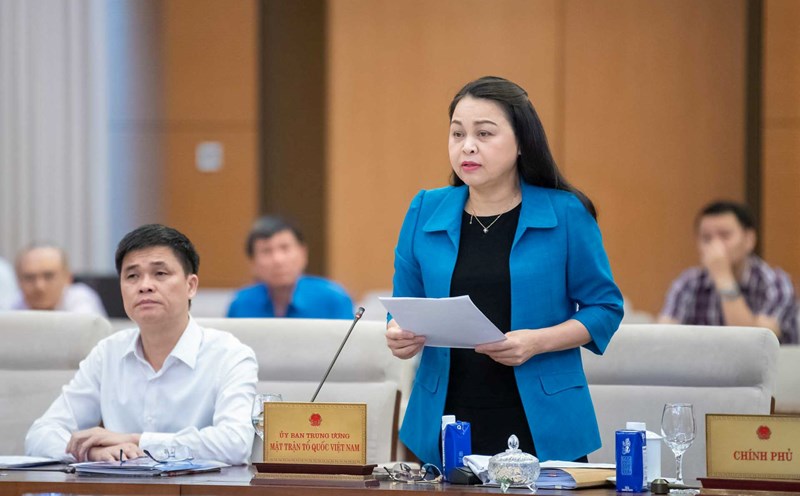Delegates said that to develop a competitive energy market, a new approach to market thinking is needed, thereby creating new era opportunities and national position.
The program has the attention and support of Vietnam Oil and Gas Group, Binh Son Refining and Petrochemical Joint Stock Company, and Petrolimex Aviation Fuel Joint Stock Company.

The legal framework is not really consistent.
According to Director - Editor-in-Chief of the National Political Publishing House, Vu Trong Lam, developing a competitive energy market is not only an economic requirement but also a strategic task to ensure energy security and sustainable national development. However, besides remarkable achievements, Vietnam's energy market still faces many difficulties and major challenges. Specifically, the energy sector's infrastructure has not kept up with the pace of development, especially power transmission infrastructure. Renewable energy projects are developing rapidly but the transmission system has not been upgraded synchronously, leading to overload in some areas, causing great waste. Despite its great potential for renewable energy, Vietnam still depends heavily on fossil fuels, especially coal-fired thermal power. This not only increases greenhouse gas emissions but also puts great pressure on the environment.

In particular, the competitive energy market has not developed synchronously, lacking connectivity between sub-sectors, between power generation and power transmission; the energy price policy is still inadequate, not completely consistent with the market mechanism, and not separate from social security policy. Some energy projects invested by state-owned enterprises are still losing money; some energy projects invested abroad have the potential to lose capital. Delegates also pointed out many bottlenecks in ensuring energy security today, such as: high energy demand is putting pressure on the infrastructure of the energy sector, the need for large investment capital in the context of high public debt and the unfavorable equitization process. In particular, the domestic primary energy supply is still limited, leading to increasing dependence on imported fuels, especially fuel for power generation. Becoming a net energy importer and increasing the proportion of imported energy will have a major impact on national energy security. It is forecasted that from 2020 to 2030, fuel imports will triple and by 2050 increase eight times compared to 2019. This shows that most of Vietnam's energy consumption comes from imported sources.

According to Associate Professor, Dr. Tran Dinh Thien, former Director of the Vietnam Economic Institute, to develop a competitive energy market, a new approach to market thinking, modernization and renewable energy vision is needed. It is necessary to adjust the renewable energy development strategy on both the supply and demand sides on the basis of price and market regulation, proactively promoting the process of electricity marketization in parallel with electricity prices. For electricity prices to be truly market-oriented and fair in society, it is necessary to separate the roles of the state and the market. It is necessary to return the true role of an enterprise to Vietnam Electricity Group, at the same time accelerate the formation of a two-component electricity price mechanism (capacity price and electricity price), as well as proactively have a plan to adjust electricity prices seasonally, except in unusual cases - Associate Professor, Dr. Tran Dinh Thien shared.







